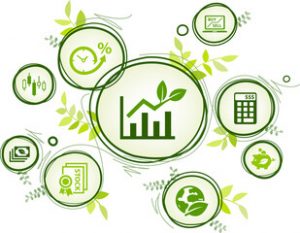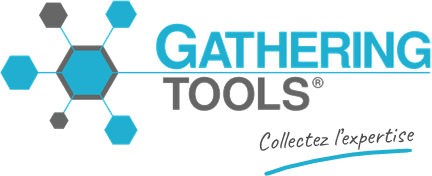A CSR (Corporate Social Responsibility) report is a periodic document (usually published annually) in which companies disclose their actions and performance related to corporate social responsibility. Since 2017, it has become mandatory for publicly listed companies with a turnover exceeding €100 million or employing more than 500 people.
How to Generate a CSR Report?
 Before 2017, CSR issues were not systematically addressed within companies. CSR processes were implemented at the discretion of each organization, with no mandatory reporting requirements, although industry standards (e.g., agri-food, chemicals) still had to be respected.
Before 2017, CSR issues were not systematically addressed within companies. CSR processes were implemented at the discretion of each organization, with no mandatory reporting requirements, although industry standards (e.g., agri-food, chemicals) still had to be respected.
When CSR reporting became mandatory, organizations had to implement tools to measure their impact based on specific KPIs. While most companies had HR solutions to collect and consolidate social data, gathering environmental data proved to be more difficult. These data vary widely from one company to another — such as energy and water consumption, wastewater discharge, air emissions, or recycling policies.
CSR solutions are often complex to deploy and not always aligned with the operational realities of the business. As a result, many companies turned to Excel to fill the gaps.
CSR Reporting and Excel: Filling the Gaps

These companies are often international, with multiple subsidiaries spread across the globe. They don’t necessarily operate under a unified Information System across all entities. That’s why Excel can seem like an optimal solution for collecting CSR data from each structure.
However, the reality is much more complex:
-
The data is highly heterogeneous,
-
The stakeholders are not always clearly identified,
-
The language used varies from one region to another…
As a result, the CSR manager must spend countless hours processing the data — standardizing it, following up with stakeholders, checking data quality, and consolidating everything into a single report. This becomes nearly unmanageable when dealing with hundreds of thousands of data points.
Gathering Tools: Automating Validation and Control Processes
This is where Gathering Tools comes into play. To generate a global CSR report, data must be collected from each entity, country by country, and then consolidated into a comprehensive corporate-level summary.
This requires multiple levels of validation: first at the country or regional level, then centrally. Gathering Tools enables the creation of customized workflows to collect data using tailored formats, lock documents until they are approved, and automatically forward them to the next level once all prerequisites are met.
With Gathering Tools, inconsistencies are automatically detected:
-
Incorrect formats,
-
Excessively high or low values,
-
Wrong currencies, etc.
Documents are generated in French or English, ensuring they are understandable by the CSR manager.
Gathering Tools: Save Time, Improve Reliability

Although Gathering Tools documents look just like Excel files, nothing changes for users — they continue working in a familiar interface. However, the solution brings powerful enhancements: it allows you to standardize row and column formats, control editing permissions, highlight errors, maintain version history, and ensure full data traceability.
The time savings for CSR managers are significant, enabling them to focus on defining and tracking environmental improvement plans throughout the year.
On top of that, the tool centralizes and secures data by storing it within the IT department’s infrastructure. Shadow IT becomes a thing of the past.










